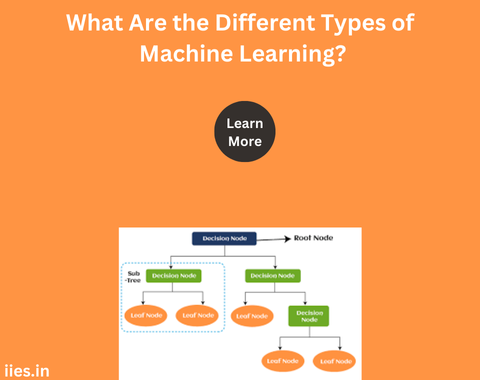1. Supervised Learning
Supervised learning is the most common type of machine learning. In supervised learning, the model is trained on a labeled dataset, meaning that each training example is paired with an output label. The goal is to learn a mapping from inputs to outputs that can make accurate predictions or classifications on new, unseen data.
Key Characteristics:
- Training Data: Contains input-output pairs.
- Objective: To predict the output from the input data.
- Applications: Includes tasks such as image classification, spam detection, and regression problems (e.g., predicting house prices).
Common Algorithms:
- Classification Algorithms: Such as logistic regression, support vector machines (SVM), and decision trees.
- Regression Algorithms: Such as linear regression and polynomial regression.
2. Unsupervised Learning
In unsupervised learning, the model is trained on data that does not have labeled responses. The goal is to identify patterns, structures, or relationships within the data. This type of learning is useful for exploring and understanding the underlying structure of data.
Key Characteristics:
- Training Data: Contains only input data without corresponding output labels.
- Objective: To discover hidden patterns or groupings in the data.
- Applications: Includes clustering (e.g., customer segmentation), dimensionality reduction (e.g., principal component analysis), and association rule learning (e.g., market basket analysis).
Common Algorithms:
- Clustering Algorithms: Such as k-means clustering and hierarchical clustering.
- Dimensionality Reduction Algorithms: Such as principal component analysis (PCA) and t-distributed stochastic neighbor embedding (t-SNE).
3. Reinforcement Learning
Reinforcement learning (RL) differs from supervised and unsupervised learning in that it is focused on learning to make decisions. An RL agent learns by interacting with an environment and receiving feedback in the form of rewards or penalties. The goal is to learn a policy that maximizes the cumulative reward over time.
Key Characteristics:
- Training Data: Consists of interactions with the environment, including states, actions, and rewards.
- Objective: To learn a strategy or policy that maximizes long-term rewards.
- Applications: Includes robotics (e.g., robot navigation), game playing (e.g., AlphaGo), and autonomous vehicles.
Common Algorithms:
- Model-Free Methods: Such as Q-learning and SARSA.
- Model-Based Methods: Such as dynamic programming and policy gradient methods.

